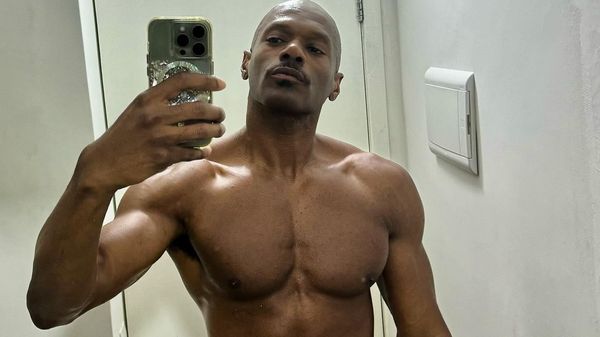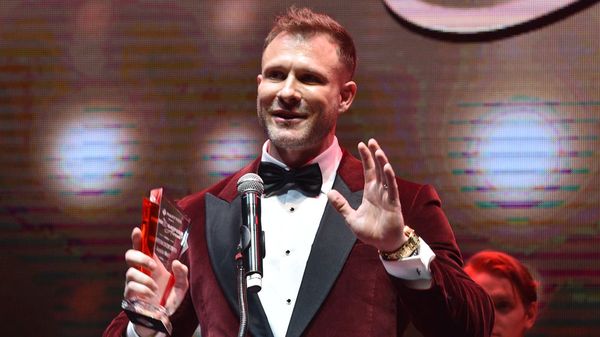
Jun 27
The Ethics of Cheating: Navigating Moral Dilemmas in Your Married Life
READ TIME: 5 MIN.
Cheating in a marriage is one of the most challenging moral dilemmas a person can face.
The idea of betrayal strikes at the core of the trust and commitment that marriage represents. It's not just about the physical act but the emotional devastation it can cause. Understanding the ethical implications and navigating these treacherous waters with sensitivity and integrity is crucial. This article will explore the complex ethics of cheating in marriage and how to address these moral challenges.
The Impact of Cheating on Trust and Intimacy
Trust is the bedrock of any relationship, especially marriage. Cheating shatters this foundation, often leading to a cascade of emotional and psychological repercussions. The immediate consequence is a profound breach of trust. When one partner cheats, the other is left grappling with feelings of betrayal, hurt, and confusion. This erosion of trust can make it incredibly difficult for the relationship to recover.
Intimacy, both physical and emotional, takes a massive hit when infidelity enters the picture. The cheated partner may feel inadequate, questioning their worth and attractiveness. The cheater might experience guilt and shame, creating a barrier to genuine emotional connection. Rebuilding intimacy requires time, effort, and a willingness to be vulnerable once again. It demands open and honest communication, where both partners can express their feelings and fears without judgment.
Cheating also impacts the cheater. Guilt and remorse can weigh heavily on their conscience, creating a cycle of self-loathing and regret. The moral dilemma here is not just about the act of cheating but also the ethical responsibility of addressing the damage it causes. This involves acknowledging the harm done, taking responsibility, and making amends where possible. It's about understanding the broader implications of one's actions on the partner, the relationship, and oneself.
Rebuilding trust and intimacy after cheating is a long and arduous journey. It requires both partners to be committed to the process. Forgiveness doesn't come easily, and it's often not a one-time event but a continuous effort. For the cheated partner, it's about finding the strength to trust again. For the cheater, it's about proving their sincerity and commitment through consistent actions. This journey, while difficult, can sometimes lead to a stronger, more resilient relationship.
The Moral and Ethical Implications of Cheating
Cheating in a marriage raises profound moral and ethical questions. At its core, marriage is a promise of fidelity and commitment. When one partner breaks this promise, it challenges the very ethics of their character and their respect for the marital bond. This betrayal is not just personal but a breach of the social and moral contract that marriage represents.
From an ethical standpoint, cheating is seen as a failure to honor the principles of honesty, loyalty, and respect. These values are fundamental to any relationship, and their violation can lead to significant moral conflicts. For instance, the cheater must grapple with the dishonesty of their actions. This internal conflict often leads to a struggle between their desires and their ethical responsibilities. The question of whether to come clean or keep the affair hidden is fraught with moral dilemmas.
The cheated partner faces their own set of moral challenges. Forgiveness can be a difficult path to navigate. It's about moving past the hurt and reconciling the betrayal with their ethical beliefs about trust and loyalty. This process requires deep introspection and, often, therapy or counseling support. The moral dilemma is balancing their right to feel hurt and betrayed with the possibility of rebuilding the relationship.
The broader societal implications of cheating cannot be ignored. Society generally condemns infidelity, viewing it as a violation of social norms and moral codes. This societal judgment can add an extra layer of pressure and shame on both partners. The cheater might feel ostracized, while the cheated partner might face stigma and unsolicited advice from others. Navigating these societal pressures while dealing with personal pain adds another dimension to the ethical complexities of cheating.
Ultimately, the moral and ethical implications of cheating in marriage force individuals to confront their values and beliefs. It challenges them to reflect on their actions, take responsibility, and align their behavior with ethical principles. This introspection is crucial for personal growth and finding a way forward, whether repairing the relationship or moving on separately.
Steps to Address and Overcome Infidelity
Addressing and overcoming infidelity requires a deliberate and compassionate approach. The first step is open and honest communication. Both partners need to express their feelings, fears, and hopes without fear of judgment. This dialogue is essential for understanding the root causes of infidelity and its impact on each partner. It's about creating a safe space where both can be heard and validated.
Seeking professional help is often a crucial part of the healing process. A therapist or marriage counselor can provide guidance and support as both partners navigate the complex emotions and challenges that come with infidelity. Therapy offers tools and strategies for rebuilding trust, improving communication, and addressing underlying issues that may have contributed to cheating. It's a space for both partners to work through their emotions and find a path forward together.
Rebuilding trust is a gradual process that requires time and patience. Cheating must demonstrate commitment to change through consistent and trustworthy behavior. This might involve being more transparent, keeping promises, and showing empathy towards their partner's feelings. For the cheated partner, it's about finding the courage to forgive and to trust again. This doesn't mean forgetting the betrayal but learning to move forward without letting the past define the relationship.
Setting boundaries and expectations is also crucial. Both partners need to agree on what is acceptable behavior and what isn't. This clarity helps prevent future misunderstandings and provides a framework for accountability. It's about creating a new foundation for the relationship, one that is based on mutual respect and understanding. These boundaries must be respected and revisited as the relationship evolves.
Forgiveness is a key element in overcoming infidelity. However, it's important to note that forgiveness is a process, not an event. It involves letting go of resentment and anger, not for the cheater's sake but for one's own peace of mind. This doesn't mean condoning the behavior but choosing to move past it. For the relationship to heal, both partners need to be willing to let go of the past and focus on building a better future together.
Lastly, maintaining a commitment to ongoing growth and improvement is vital. Relationships are dynamic, and both partners must be willing to adapt and grow together. This involves continuously improving communication, deepening emotional connection, and supporting each other's personal growth. By focusing on these positive changes, both partners can work towards a stronger, more resilient relationship.
Navigating the moral dilemmas of cheating in marriage is undeniably challenging. It requires a deep understanding of the impact on trust and intimacy, a thoughtful consideration of the ethical implications, and a commitment to addressing and overcoming the betrayal. While the journey is difficult, it's not impossible.
With patience, open communication, and a willingness to grow, couples can find a path to healing and rebuild their relationship on a foundation of renewed trust and respect. Ultimately, the ethics of cheating challenge us to be better, more honest, and more compassionate partners. Finally, it's important to keep in mind that there is such a thing as ethical cheating when partners consent and it aligns with their kinks and sexual fantasies. If you are interested in that, you can check out those affair websites!






